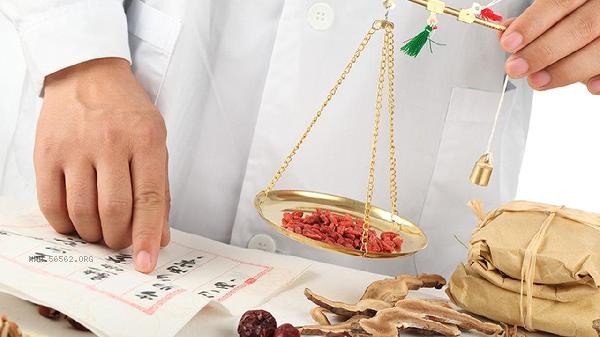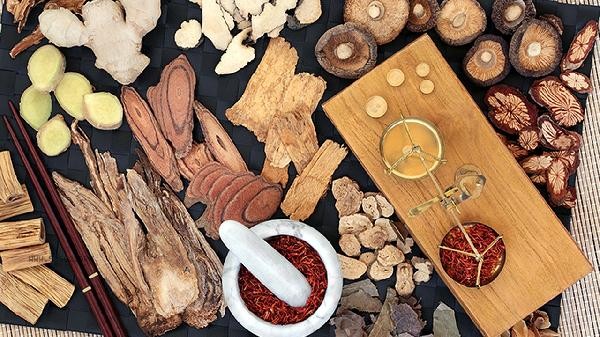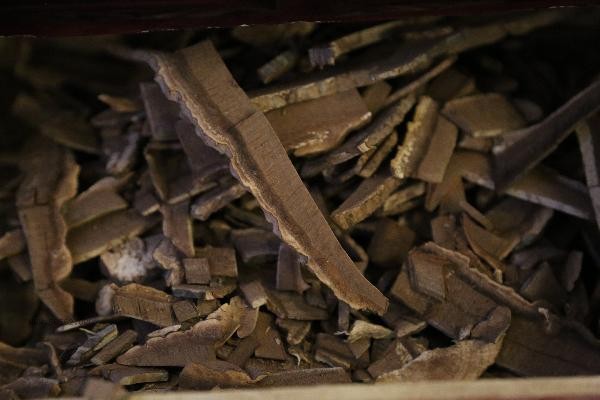The commonly used traditional Chinese medicinal materials for stewing nourishing soup include Angelica sinensis, Astragalus membranaceus, Goji berry, Codonopsis pilosula, red dates, etc. These medicinal herbs have the effects of nourishing qi and blood, strengthening the spleen and kidneys, and can be used in combination according to one's physical condition.

1. Angelica sinensis
Angelica sinensis has a warm and sweet taste, and belongs to the liver, heart, and spleen meridians. It has the effects of nourishing blood, promoting blood circulation, regulating meridians, and relieving pain. Suitable for those with blood deficiency, yellowing, and menstrual disorders, it is often combined with Rehmannia glutinosa and Paeonia lactiflora. When using, be cautious for those with loose stools. It is recommended to use 5-10 grams each time.
2. Huangqi
Huangqi has a sweet and slightly warm taste, and can regulate the spleen and lung meridians. It can tonify qi, stabilize the surface, promote diuresis, and reduce swelling. Suitable for those with qi deficiency, weakness, and loose stools, often used together with Codonopsis pilosula and atractylodes macrocephala. People with yin deficiency and excessive fire should not consume too much. It is recommended to take 10-15 grams per day.
III. Goji Berry
Goji berry has a flat and sweet nature, and can nourish the liver and kidney meridians, benefit essence and improve vision. Suitable for patients with liver and kidney yin deficiency and visual impairment, it can be paired with chrysanthemum and Rehmannia glutinosa. Suspend use when experiencing external fever. It is recommended to consume 10-15 grams per day.

4. Codonopsis pilosula
Codonopsis pilosula has a sweet and mild taste, and can regulate the spleen and lung meridians. It can invigorate the spleen and lungs, nourish blood and produce fluids. Suitable for patients with spleen and lung weakness and insufficient qi and blood, often combined with Poria cocos and Atractylodes macrocephala. Those with actual heat syndrome should use it with caution, and it is recommended to use 9-15 grams each time.
Fifth, Red Dates
Red dates have a warm and sweet taste, and can regulate the spleen and stomach meridians. They have the effects of nourishing the middle and qi, nourishing the blood and calming the mind. Suitable for those with weak spleen and stomach, insomnia and frequent dreams, it can be cooked together with longan meat and lotus seeds. People with damp and bloated stomachs should not eat too much. It is recommended to take 3-5 pills per day.

When stewing soup, it is recommended to soak the medicinal herbs for 20 minutes first, then simmer over low heat for 1-2 hours. For those with a slightly hot constitution, they can pair it with nourishing yin herbs such as Ophiopogon japonicus and Polygonatum sibiricum. In winter, they can add warm yang herbs such as Cistanche deserticola and Morinda officinalis to their diet. Pregnant women and patients with chronic diseases should consult a traditional Chinese medicine practitioner before use to avoid interaction with Western medicine. It is advisable to drink nourishing soup 2-3 times a week for daily use, and to promote absorption through moderate exercise.









Comments (0)
Leave a Comment
No comments yet
Be the first to share your thoughts!